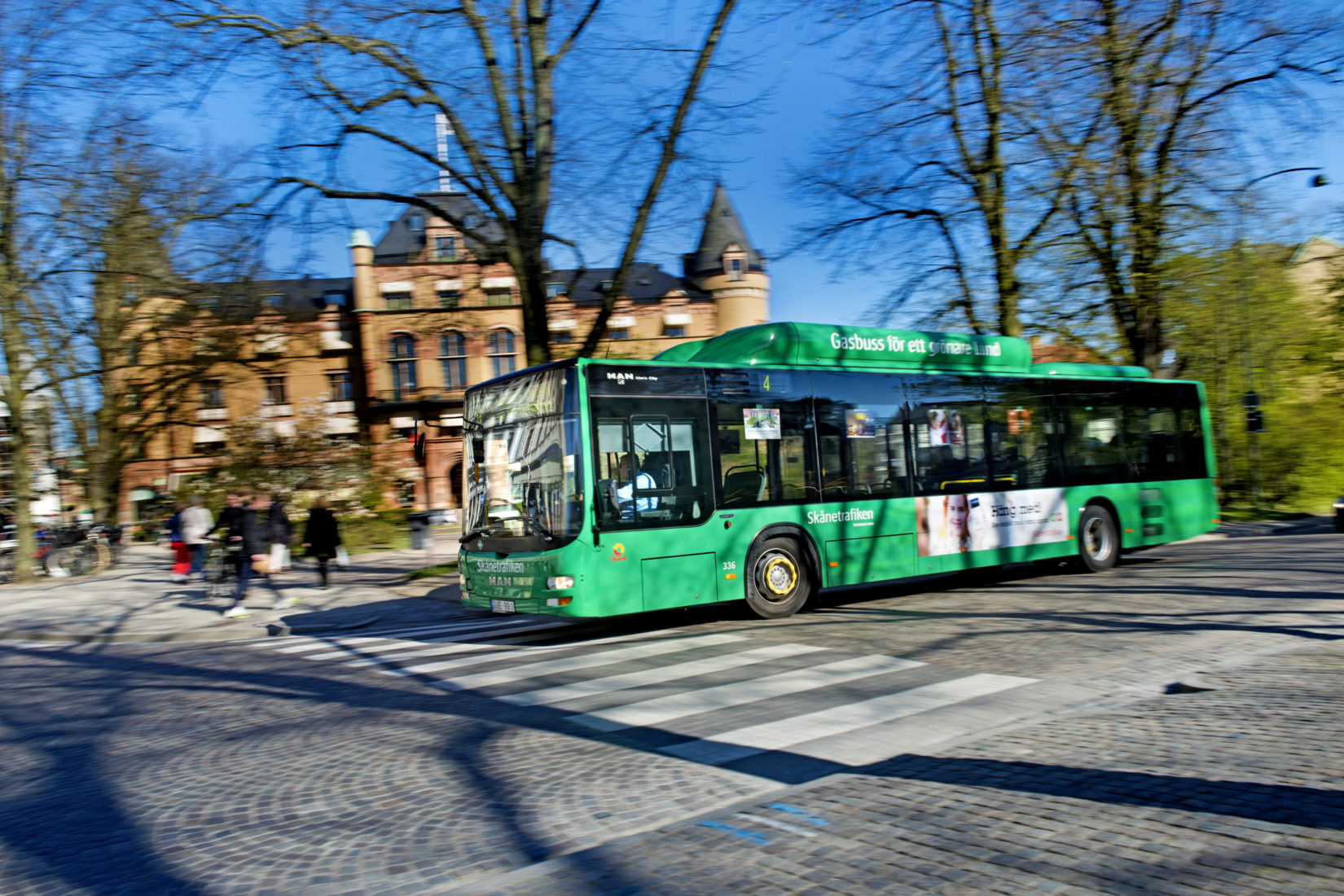Mattias Andersson, who works for Region Blekinge in Sweden, says it should be easy to travel by public transport in the Baltic Sea region.
– We think it is important to have the opportunity to travel sustainably between the countries, especially for those who do not have a car. Many young people refrain from getting a car and there should be opportunities for them to travel by public transport across national borders.
This was also the background when Region Blekinge five years ago started the BSR INTERCONNECT project together with the Estonian city of Viimsi, the Polish region of Pomorskie and the University of the German city of Rostock.
The BSR INTERCONNECT project, which was funded by the Swedish Institute, was a starting point for several major international collaborations on public transport in the region. As a result, the partnership received support from the EU’s Interreg South Baltic programme, for a project called Interconnect. The Interconnect project aimed to promote public transport travel in and between the regions in the Southern Baltic Sea region area by providing the opportunity to offer ticket, payment and information services.
One goal of the Interconnect project was to develop a common ticket which makes it possible to travel from Poland to, for example, Sweden on one ticket. One result is that it has become easier to use public transport between Karlskrona in Sweden and Gdansk / Gdynia in Poland, says Mattias Andersson.
– In general, the timetables are adjusted to each other. Also, our partner in Poland has developed a travel planner for public transport in Sweden. Travelers in Blekinge can view this on the “Buss-TV” which is an infotainment system that shows connection information and news and other useful information. For example, information is displayed in Polish when the bus departs from the ferry terminal at Verkö in Region Blekinge, Sweden.
However, there is still much to be done to develop public transport between the countries in the Baltic Sea region, says Mattias Andersson. Among other things, ticket sales will be simplified – something that has been delayed due to the pandemic.
– We have not yet really managed to integrate ticket sales between Sweden and Poland. However, the regions together with the shipping company have an agreement to continue the integration when conditions are normal again.
In addition, the Polish partner Pomorskie region has begun extensive work with funding from the European Regional Development Fund (ERDF) focusing on development of the ticketing systems and the physical infrastructure. Partners from BSR INTERCONNECT are also involved in an application for funding from Horizon 2020.
Mattias Andersson says that the support from the Swedish Institute for the BSR INTERCONNECT project was important for the other initiatives.
– The big benefit of BSR INTERCONNECT was that a number of core issues were identified. This laid the foundation for the application for the South Baltic Programme. As the partnership had been established, that project got off to a good start and many issues could be pursued. These in turn became applications to both Horizon 2020 and the ERDF.
He thinks it is a good idea to apply for project initiation from Swedish Institute as a first step to a bigger application for bigger EU projects.
– I absolutely think that you should take that chance. The competition in the EU’s major funding programmes is tough and the more prepared and elaborated the application, the greater the opportunity to obtain funding.
Camilla Wristel, programme manager at the Swedish Institute is glad that the support for Region Blekinge has grown into something bigger.
– We know from our evaluations that many others have similar experiences. A small effort often grows into something that is relevant also in other parts of the Baltic Sea region. Our ongoing call, which closes on 11 February 2021, is an opportunity to prepare for future calls in the EU’s new programming period.
Facts
The BSR Interconnect project was funded by the Swedish Institute through the funding scheme Seed funding for cooperation projects in the Baltic Sea region.
Swedish Institute provides seed funding for joint projects in which organisations based in Sweden can start and expand collaborations to meet transnational challenges together with organisations from the Baltic Sea region countries including Russia and the countries of the EU Eastern Partnership.
A call is ongoing and closes on 11 February 2021. The Swedish Institute organizes digital information meetings for Swedish main applicants on 12 and 18 January. On 14 January, a digital information meeting will be organized combined with a digital workshop. Read more and register here.
